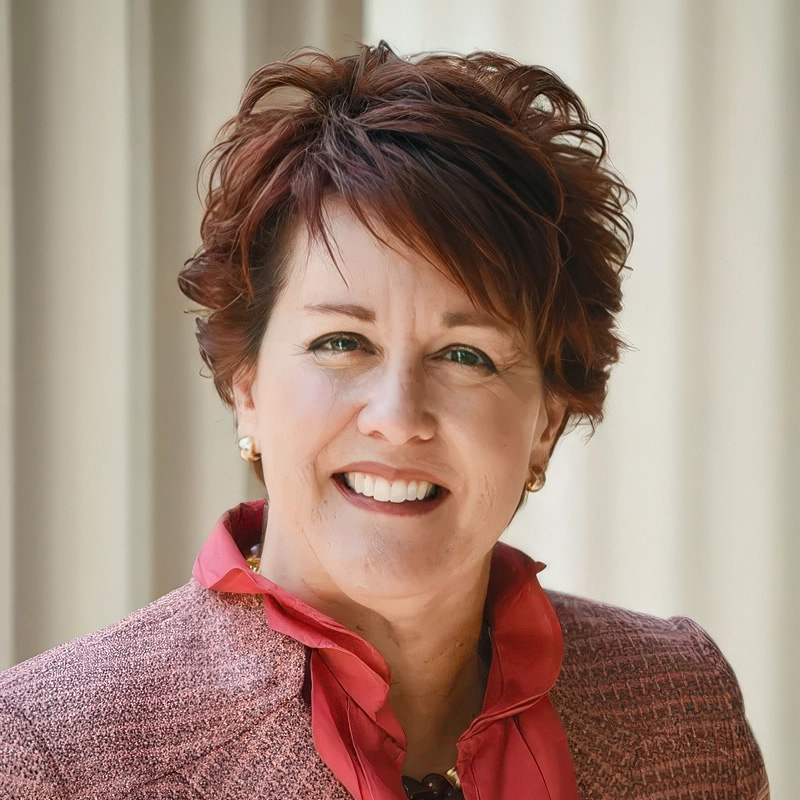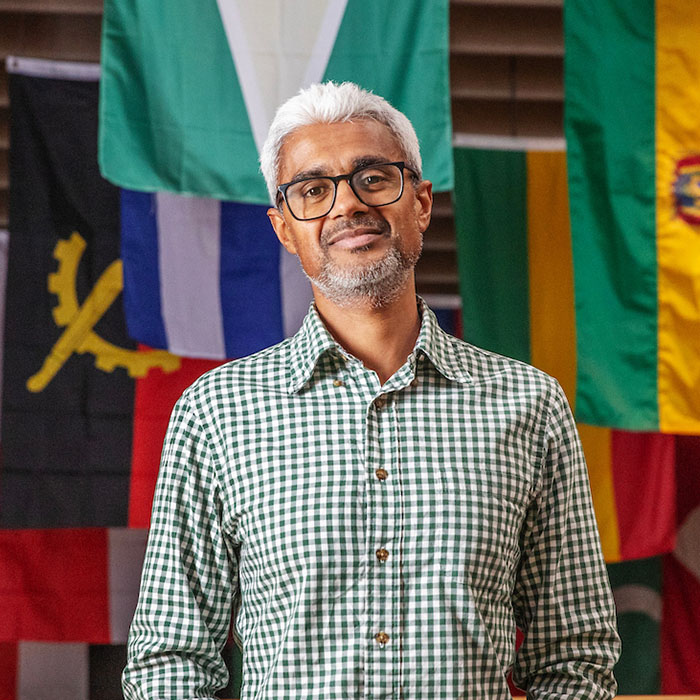Metamorphosis: Skidmore's inaugural Humanistic Inquiry Symposium
More than 100 faculty, staff, students, Skidmore retirees and community members attended
Skidmore's inaugural Humanistic Inquiry Symposium, "Metamorphosis," held March 23–24,
2018, at the Tang Teaching Museum.
Michael Arnush, professor of classics, and Barbara Black, professor of English, co-founded
the symposium and are working with faculty to develop an ongoing forum at Skidmore
for humanistic inquiry. The mission is to pursue and share the intellectual work of
the Skidmore community and to allow faculty to connect across departments and disciplines.
The inaugural event featured keynote speaker Martin Puchner, the Byron and Anita Wien
Professor of Drama and of English and Comparative Literature at Harvard University
and founding director of the university's Mellon School of Theater and Performance
Research.
Puchner's presentation, "Storytelling from the Tablet to the Internet," was a synopsis
of his recently published book, The Written World, which explores his interests in the intersection of literature, history and geography,
and describes the transformational history of literature and the written word from
the invention of writing to the Internet.
A variety of Skidmore faculty performances followed Puchner's keynote: Joel Brown,
distinguished artist-in-residence in music, and Brett Grigsby, lecturer in music,
performed Edward Flower's arrangements of Barbara Allen and The Cherry Tree Carol; April Bernard, professor of English, performed a brief poetry reading of "Elizabethan
Ghosts"; Robert ParkeHarrison and Shana ParkeHarrison exhibited "Constructed Realities"
photographs; Will Bond, senior artist-in-residence in theater, performed Ovid Metamorphoses 10: Pygmalion; and Debra Fernandez, professor of dance, and Emily Gunter '19 presented Hybrid, choreographed by Fernandez. Eliza Kent, professor of religious studies, and Gordon
Thompson, professor of music, also presented, followed by a reception and book signing
by Puchner.
Throughout the day on Saturday, faculty presentations further explored the concept
of metamorphosis and transformation through a variety of themes including the future
of humans and nonhumans, evolution and mutation, engaging with and departing from
conceptions of the self, the future of the planet, new media, changes in network culture,
new technologies, identities and intersectionalities, stories of shape-shifting, journeys,
global warming, hybridization, innovation, migrations and changing populations, adaptations
of myth, the transformation of the mundane, growth and aging, life transitions and
the evolution of the liberal arts.
Saturday's presentations highlighted the scholarship and research of Dan Curley, classics;
Sarah Goodwin, English; Ryan Overbey, religious studies; Bina Gogineni, English; Crystal
Dea Moore, social work; Sara Lagalwar, neuroscience; Ian Berry and Rachel Seligman,
Tang Museum; Heather Hurst, anthropology; Edwin Román-Ramirez, anthropology; Jeff
Segrave, health and human physiological sciences; Catherine White Berheide, sociology;
and Joseph Cermatori, English.
To a capacity crowd on Saturday morning at the Tang Museum, Crystal Dea Moore, professor
of social work and interim dean of the faculty and vice president for academic affairs,
said, "I'm so pleased to spend time with all of you today. We don't often have an
opportunity to celebrate our own work and passions. Thank you, Michael [Arnush] and
Barbara [Black], for the selfless gift you have provided by coordinating this opportunity."
Moore's moving presentation, titled "The Presence of Absence," explored the pain of
absence due to death, addiction, mental illness and abduction. "Pain times resistance
equals suffering. The more we push away from the pain, the more we are likely to suffer,"
Moore said.
"Our key goals of this event were to showcase the work of Skidmore's humanists, to
share our work with one another, and to build a sense of intellectual and creative
community around a topic of consequence, selected by the faculty," Black said.
Did the event serve to achieve the goals set by co-founders Black and Arnush?
"More than we could have imagined," said Arnush. "We brought together a sizeable community
of faculty, staff, students and retirees to interrogate and celebrate the meaning
of humanism against the backdrop of metamorphosis. We heard from faculty across many
departments and created a synergistic symphony of scholarship and artistic creativity.
We brought a scholarly conference back to our campus, and a conference that welcomed
all of us."
Puchner was impressed with Skidmore's inaugural event. "Two things particularly struck
me," he said. "The first was the combination of art-making and scholarship. The symposium
was a perfect model because it turned out that the poetry readings and performances
had as much to say about the topic of metamorphosis as the scholarly contribution.
Perhaps the fact that the symposium took place in a museum helped (and the tour of
the museum contributed as well). So the curation of the event was really great.
"Second, I was struck by the enthusiasm of the participants, the eagerness with which
they encounter each other's work. The symposium really provided an opportunity for
colleagues who might only meet at committee meetings to exchange work."
In closing remarks on Saturday evening, Puchner took time to reflect on pedagogy and
teaching as a number of faculty participants shared their educational experiences,
their training and thoughts about their own teachers, and reflected upon their intellectual
and artistic formation.
The second day of the symposium coincidentally took place on the same day of the national
March for Our Lives movement, in which students across the United States marched against
gun violence.
Puchner concluded the symposium with a reflection on today's generation of students
and the active role they are taking in their education and lives. Another fitting,
and timely, example of metamorphosis: A generation of brave students navigating a
new, ever-changing world.
For more information about humanistic inquiry at Skidmore, please visit www.skidmore.edu/hi. To view a recording of the event, visit https://livestream.com/SkidmoreCollege/symposium.


